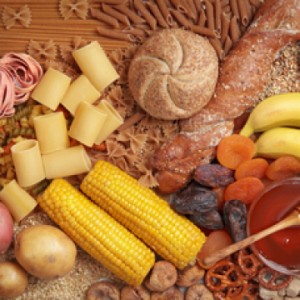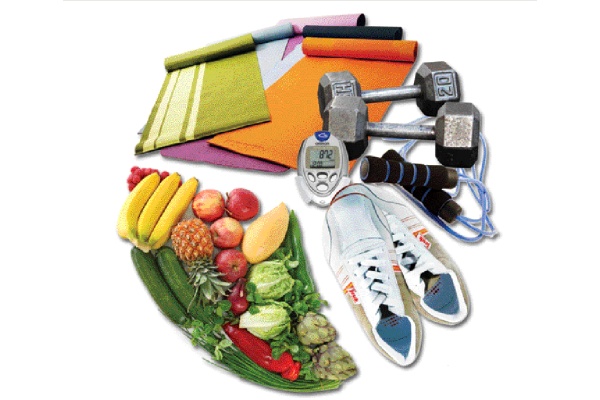Running is nutrition intensive and Planet Fitness want to break it down for you. You need carbs to keep those pistons firing, protein to build up your leg muscles, and vitamins for a great immune system. Most of us get the general gist of a balanced diet, but the nitty gritty can really wind you up. The following is a simple guide to start you on your running nutrition.
Carbohydrates
 A lot of those getting into fitness for the first time have the notion that carbohydrates are the enemy, when in fact calories and in particular empty calories are. Carbohydrates are essential to the body because they provide fuel for every function in our body, from your leg muscles, digestion and even your brain. For all fitness complex carbohydrates are the way to go.
A lot of those getting into fitness for the first time have the notion that carbohydrates are the enemy, when in fact calories and in particular empty calories are. Carbohydrates are essential to the body because they provide fuel for every function in our body, from your leg muscles, digestion and even your brain. For all fitness complex carbohydrates are the way to go.
Complex carbs can be found in brown rice, sweet potatoes, pasta and even some grain like quinoa. Complex carbs take a while to digest, thus they release glucose much slower throughout the day, providing you with adequate energy as you run up that hill.
Protein
Protein builds muscles and it promotes healing after a run. Sources of protein include but are not limited to red meat such as beef, poultry, fish and seafood, eggs, dairy products, pulses and nuts. Protein should comprise a significant portion of your diet if you want to build those running muscles.
Red meat has been vilified for a lot of health issues. Research shows that eating lean red meat from free-range animals is very healthy. It provides the best sources of iron and zinc, and provides a massive of mount of protein compared to other food sources. Look for free range meat because it also comes with less cholesterol. Supplement this with poultry and/or eggs, and you have all the protein you need.
Fish and seafood, are a great alternative for protein. This is because they are low in cholesterol, and high in Omega 3 fats which do wonders for the memory. They also contain zinc, copper and chromium which can be low in ordinary diets.
Pulses and nuts are also excellent sources of protein. However, compared to other protein sources they are pretty low, so you have to consume a lot of them in order build adequate stores. They are great for vegetarians or those looking to cut down on animal meat.
Dairy is an excellent source of protein. Either in the form of milk, cheese, yoghurt or even butter. Dairy also provides calcium, which is essential in building bones. We cannot run without our femurs or tibias.
Vitamins, Antioxidants and Phytochemicals
Did you know that all those colors in vegetables are actually chemicals that boost your immune system? They are called antioxidants, and they protect our bodies against the effects of free radicals that are formed when our bodies metabolize food. Phytochemicals are substances found in vegetables and fruits which decrease the risk of diseases such as colon and prostate cancer, and reduce your risk of heart disease. Vitamins aid the body in its functions like Vitamin A in sight, and vitamin D promotes bone formation.
Great sources of these are vegetables, not just leafy veggies, and fruits. It is advisable to eat at least 5 different colored vegetables a day. When you eat fruits, eat them with their skins, they contain phytochemicals and fiber which is great for digestion.
So next time you want to take that supplement, or nutrition bar, think of going the natural way. Before your next trip to Powerhouse Gym, try eating a baked potato with a vegetable salad and see better results. As always, remember to hydrate.
